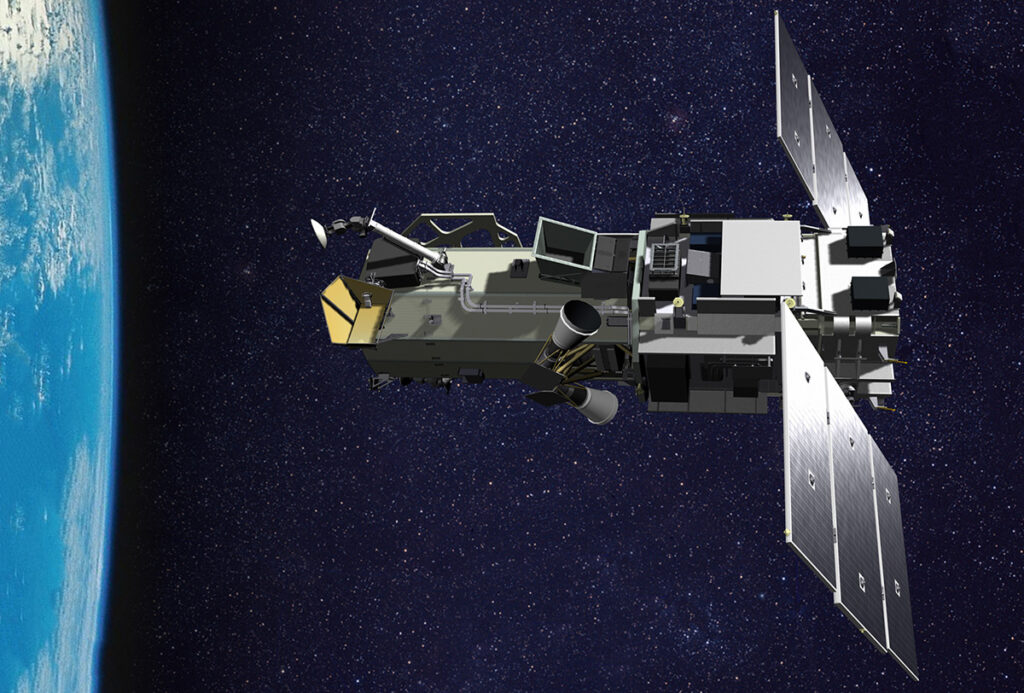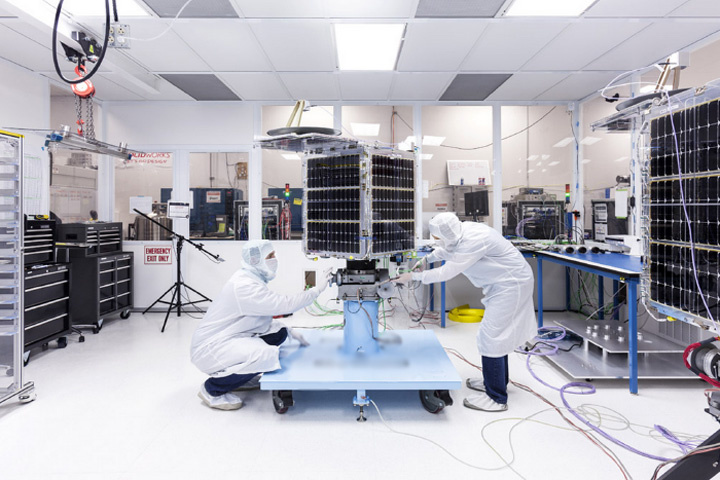Commercial Space Needs Regulatory Clarity
Posted on

Commercial space has many military applications, The National Geospatial Intelligence Agency relies heavily on commercial imagery supplied by DigitalGlobe satellites. The National Reconnaissance Office recently joined with NGA in something called the Commercial GEOINT Activity to buy commercial satellite imagery. A raft of companies are talking about building and operating satellites to provide imagery and other data. The launch business is being transformed by SpaceX, Blue Origin and others. Todd Harrison, the most respected US defense budget analyst, wrote this op-ed for us from his perch at the Center for Strategic and International Studies, about how best the government can encourage and sustain these fast-shifting industries. Read on. The Editor.

Todd Harrison
The past decade has been an exciting one for commercial space enthusiasts like myself. A plethora of space startups have entered the market and many incumbents have re-energized their commercial space businesses. While a few of the larger startups are backed by billionaire investors with a passion for space exploration, many are funded by venture capital investors looking for a return on investment.
Many of us remember a similar period of space optimism in the 1990s with grand plans for hundreds of satellites blanketing the sky. That came to a crashing halt as cellular networks outpaced satellite communications constellations in coverage and price, leading to the bankruptcies of Iridium in 1999 and Globalstar in 2002.
Will this time be different? It’s too soon to tell, but one thing is certain: policy makers have an important role to play in helping these new commercial space ventures get off the ground. I’m not talking about tax credits, investment incentives, or direct government funding, although I’m sure many companies would welcome this kind of help. What commercial space needs most today is something only the government can provide: regulatory clarity.
Right now there are significant gaps in the U.S. government’s regulatory authority and licensing process for newly emerging commercial space ventures. Processes exist for some ventures, but not for others. U.S. companies that want to use satellites to take pictures of the Earth go through the National Oceanic and Atmospheric Administration (NOAA) to get a license. Those that want to use satellites for communications go through the Federal Communications Commission (FCC). The FCC license process is designed mainly to prevent radio frequency interference, and NOAA’s review ensures potential national security risks are addressed. But for other types of non-traditional commercial space missions, such as on-orbit servicing of satellites, mining of asteroids or the moon, or establishing a private space station for tourism and commercial research, similar processes do not yet exist.

Terra Bella (nee Google) satellite being readied
In many cases it’s not clear what agency, if any, a commercial firm should go through to get approval. This uncertainty can make it difficult for innovative space companies to get the investment they need to develop cutting edge technologies because of the risk that the government may step in at the last minute and prohibit a mission from launching—or worse, order it to cease operations once it is in orbit. Insurance companies may also be reluctant to insure these missions without more legal and regulatory clarity. The lack of clear rules, authorities, and process is needlessly driving up risk for these firms. Worse yet, it may lead some of them to move to countries where there is greater regulatory clarity or less oversight.
Creating new government regulations presents a goldilocks problem: too much can be bad, but too little can also have adverse consequences. The challenge is to strike the right balance so that industry has the clarity and certainty it needs to thrive and public interests are protected, but not so much that it bogs down the approval process and stifles innovation. The United States should aim to be the Delaware of commercial space. Many businesses choose to incorporate in the state of Delaware because it has well-defined corporate laws and a high-quality court system to interpret and enforce them. The United States should try to do something similar with its commercial space laws and regulations to make it the country of choice for space companies.
What is needed is a streamlined, minimally burdensome regulatory process that addresses the full range of mission parameters. It needs to provide clear standards companies can rely upon when planning missions and developing business plans. For example, it should have a clear set of industry-driven standards and government-supported processes to check orbits for collision risks and ensure satellites have safe disposal and debris mitigation plans.
Representative Jim Bridenstine of Oklahoma proposed a bill earlier this year that would do some of the things suggested here. In particular, it would put the Federal Aviation Administration (FAA) in charge of space traffic management. The FAA makes sense to take on many of these responsibilities because it already performs a regulatory and licensing role for aviation and could be expanded to play a similar role for a wide array of space missions. While it lacks the technical capabilities of the Department of Defense (DoD) and the National Aeronautics and Space Administration (NASA), it can leverage their capabilities to carry out regulatory functions both DoD and NASA are not equipped to perform.
Ensuring a healthy and prosperous space industrial base is not just an economic issue; it is also a national security issue. Creating a smart and efficient regulatory process for commercial space will help attract and retain high-tech companies and the talented workers they employ. This is especially important as DoD relies more and more on commercial space systems to augment military space systems. Setting clear regulatory pathways and standards for commercial space businesses would also help establish norms of behavior for commercial space activities that other countries could begin to follow. This is an opportunity for the United States to lead by example to promote the peaceful use of space and stabilizing norms of behavior that are beneficial to all spacefaring countries.
Subscribe to our newsletter
Promotions, new products and sales. Directly to your inbox.
